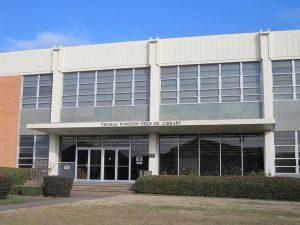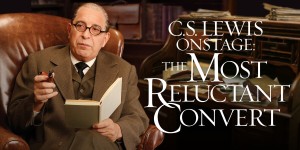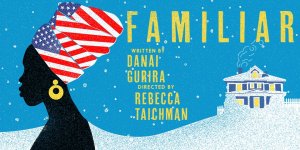March 2016
Monthly Archive
March 19, 2016
Posted by cityPSALM under
Uncategorized | Tags:
african-american,
faithfulness,
father,
fresh eyes,
gift,
gratitude,
HBCU,
higher education,
hope,
integrity,
leadership,
Nigeria,
redemption |
1 Comment
 Dr. Thomas Winston Cole, Sr. changed the course of my father’s life. In the early 1950’s, he took a chance by offering a Nigerian high school graduate of King’s College, Lagos, a scholarship to Wiley College in Marshall, TX, where Dr. Cole was the registrar. Wiley was a relatively small African-American university (<1500 students) which had ties to the Methodist Church. Though my father didn’t stay at Wiley College long enough to graduate from there, he did stay long enough to appear in two of the Wiley Wildcats yearbooks, which graced the shelves of our living room in Jos, Nigeria when I was growing up.
Dr. Thomas Winston Cole, Sr. changed the course of my father’s life. In the early 1950’s, he took a chance by offering a Nigerian high school graduate of King’s College, Lagos, a scholarship to Wiley College in Marshall, TX, where Dr. Cole was the registrar. Wiley was a relatively small African-American university (<1500 students) which had ties to the Methodist Church. Though my father didn’t stay at Wiley College long enough to graduate from there, he did stay long enough to appear in two of the Wiley Wildcats yearbooks, which graced the shelves of our living room in Jos, Nigeria when I was growing up.
My father spoke fondly of Dr. Cole and repeatedly told us the story of how this man’s kindness gave him the rare opportunity to attend university in the States. I knew that Dr. Cole had gone onto become President of Wiley and then moved to the University of Florida where he was the third highest ranking administrator (and the first African-American), with a position in Academic Affairs and as University Ombudsman. However, there were many things about Dr. Cole I was not aware of – and perhaps neither was my father – until I recently discovered a lengthy interview with him on line.
Dr. Cole had attended Wiley himself and graduated in 1934. He claimed the highlight of his time there was serving on the debate team led by Melvin B. Tolson. Tolson’s debate team excelled, despite the climate of Jim Crow, winning the national championship in 1935, a story captured in the 2007 movie, The Great Debaters, in which Denzel Washington starred as Mr. Tolson. (Prior to this film, apart from Papa, I’d never heard anyone speak of Wiley nor met anyone who’d heard of it.) After graduation, despite a degree in the natural sciences, Dr. Cole became a principal which subsequently propelled him into a higher education career. In 1950, he returned to Wiley, first as registrar and later as dean of the college. While working he managed to obtain a MSc in Educational Administration from the Univ of Wisconsin and then completed a doctorate in education at the University of Texas, the first African-American to do so. In 1958, he became the 10th President of Wiley and at the time he was installed, he became the first alumni and the first non-minister to be President. While at Wiley as the chief executive of a historically black college & university (HBCU), Dr. Cole heard Dr. King give his ‘I have a dream speech’ in Washington. He stayed at Wiley until the early 1970s, dramatically increasing student enrollment, raising $100 million in funds for the fledgling university, and overseeing the construction of a number of buildings. Today, a library is named there in his honor.
 Photo credit: Wiley College
Photo credit: Wiley College
Long after he’d moved on to study at other colleges in the US, Papa stayed in touch with Dr. Cole, faithfully sending him a Christmas card every December. He also talked often about his dream of flying Dr. Cole out to Nigeria as a way to say thank you. And more than 25 years after they first met, he actually did this. To show his appreciation for Dr. Cole’s generosity to him all those years before, Papa invited Dr. Cole and his wife Eva to visit Nigeria. He put them up in their own chalet in arguably the poshest hotel in town, showed them around, and even hosted a cocktail party for them to meet other Nigerian friends and colleagues. I believe it was Dr. Cole’s only visit to Africa and he never forgot it. In the interview I came across recently, this is what Dr. Cole shared:
As president of Wiley College, I had a few gifted African students… We had several African students on our campus; they were all on scholarship. Since I have been in Florida, one of the students who is a barrister, a lawyer, now in Nigeria, invited me to come over at his expense to visit his home country, Africa, because I was responsible for his education. In fact, he included my wife [in the trip] to Africa. We went at his expense. We brought back several things from Africa. That is what made me think about it (p36).
I recall the Coles’ trip to Jos back in 1979. They were an elegant and gracious couple. Though I was only an adolescent, I wish I’d been able to realize how significant this visit was and more importantly what a tremendous influence Dr. Cole had had on so many lives and not just my father’s.
Forget the great debaters, Dr. Cole was a great educator.
March 9, 2016

I first encountered Clive Staples Lewis at the age of 9. In 4th grade at the American missionary school I attended in Nigeria, our teacher, Miss P (all single women were really called Miss in those days) who was from New Zealand, began reading The Lion, the Witch & the Wardrobe to us every afternoon from 3:00-3:15. Just before we were dismissed for the day, as we listened to this story, we were whisked through an inviting door into an imaginary world bursting with possibility and hope. However, joy and contentment were being held captive in a land that was “always winter, never Christmas,” until Aslan, a Christ-like figure, broke the white witch’s spell and restored Narnia to its glory days. After we finished this first story, Miss P went on to expose us to the rest of the 6 books in the Narnia Chronicles, the only children’s books that CS Lewis ever published.
These stories began for me a life long fascination with Lewis. I became not only concerned with what he wrote but more importantly for me was discovering who he was, how he’d lived, and what were the events – and who were the significant people – that had shaped him. I learned Lewis was from Northern Ireland, called himself Jack from a young age which stuck, grew up in Belfast in a loving home, lost his mother at age 10, and was then sent away to an English board school in the aftermath of his father’s debilitating grief. He went on to become a brilliant student at Oxford, a scholar of Medieval and Renaissance Literature, and a professor at both Oxford and then Cambridge. Along the way, his views on God underwent a gradual but radical shift. As he repeatedly learned that more and more friends and colleagues at Oxford whom he respected for their sharp intellect were also people of faith, he underwent a process from being a staunch atheist to believing that there was a God, to eventually encountering the God of the Bible in a personal way. Much to his surprise and dare I say even horror, he became in his own words the “most reluctant convert in all of England.” He died on November 22, 1963, the same day that JFK was assassinated which meant that the US President’s death overshadowed that of Lewis.
Now, the Fellowship fo the Performing Arts, has put together a stellar one actor production of Lewis’ journey to faith, starring Max McLean. Aptly called “Most Reluctant Convert,” virtually of the words in the 90 minute single act drama come from Lewis’ own writings and letters. (As he became more well-known, he received hundreds of hand-written letters to which he replied to each one – by hand.) I saw this show several weeks ago while it was still in development and was incredibly moved at how persistently God appears to have pursued Lewis. Regardless of what you personally believe, Seeing this show is worth insight into that process alone. There’s a run of Most Reluctant Convert in Washington, DC, from April 20 – May 8. Check it out if you get the chance! And if you’re not in DC, pick up an autobiography of Lewis from your local library, or one of his many non-fiction books, and discover this genius for yourself.
March 4, 2016
Posted by cityPSALM under
Uncategorized | Tags:
africa,
african-american,
faithfulness,
family,
forgiveness,
fresh eyes,
gift,
gratitude,
hope,
mbira,
mother,
passion,
shona,
women,
writing,
zimbabwe |
Leave a Comment
t
 It may be the first time that 10 black female actors are appearing on Broadway (Eclipsed @ the Golden Theatre on 45th) or off Broadway (Familiar @ Playwrights Horizons on 42nd) at the same time in the space of 3 blocks. We have the award-winning Zimbabwean American actor (The Walking Dead) and playwright Danai Gurira to thank for that. I had the privilege of seeing Familiar last weekend and then hearing Ms. Gurira talk about the play after the show. In broad strokes, the play is a window into the tensions that are exposed in a Zimbabwean American family living in wintery Minnesota on the eve of the older daughter Tendi’s wedding to a “white boy” who works in international development. Like any wedding – not to talk of an interracial/intercultural one – family stresses that have remained contained bubble up to the surface when the joining of two people/two families is at stake.
It may be the first time that 10 black female actors are appearing on Broadway (Eclipsed @ the Golden Theatre on 45th) or off Broadway (Familiar @ Playwrights Horizons on 42nd) at the same time in the space of 3 blocks. We have the award-winning Zimbabwean American actor (The Walking Dead) and playwright Danai Gurira to thank for that. I had the privilege of seeing Familiar last weekend and then hearing Ms. Gurira talk about the play after the show. In broad strokes, the play is a window into the tensions that are exposed in a Zimbabwean American family living in wintery Minnesota on the eve of the older daughter Tendi’s wedding to a “white boy” who works in international development. Like any wedding – not to talk of an interracial/intercultural one – family stresses that have remained contained bubble up to the surface when the joining of two people/two families is at stake.
The first act had me and my (Nigerian) friend Ruth howling through much of it and I’m talking belly aching laughter. Picture an African version of My Big Fat Greek Wedding and then add the complexities of trying to please Aunt Annie from Zim who’s flown in and insists that Tendi’s fiance pay a bride price, involving cows. Meanwhile, the girls’ mother, a fiercely proud MIT-educated college professor and Annie’s younger sister, is vehemently opposed to anything Zimbabwean having raised her two daughters to be as American as McDonalds. Throw in the daughters’ father, a successful lawyer, pining for home and his younger artsy daughter, Nyasha, who’s just returned from Zim, jazzed about having had a chance to be exposed to the Shona language and who’s brought back a stunning mbira (thumb piano). If that weren’t enough, the couple getting married are both Christians and virgins – facts that become relevant to the plot as well.
The themes are not just familiar, but it’s a hugely ambitious play. The second act turns far more serious than the first when tensions reach a breaking point and we come to learn the hidden reason for so much (though not all) of the tension in this family… And then we discover that the character that has been largely overshadowed in the run up to the wedding, Tendi’s younger sister, Nyasha – who’s name aptly means grace – is the one through whom redemption comes. The final scene with the daughters’ parents tentatively dancing to the sound to Nyasha playing Shona music on the mbira almost made me cry.
A review I heard on wnyc this morning criticized the play for having too many extraneous, undeveloped characters which meant Gurira “missed an opportunity to connect audiences with their point of view.” I disagree. At the speakout after the show, Gurira – before this particular review was aired – spoke about her intentionality in creating meaty, substantial parts for each character. A playwright who feels called to tell the stories of women of African descent, she’s committed to developing roles that an actor can really “sink their teeth into.” Bravo Gurira! It showed. The acting was first rate and the Zim accents and intermitent use of Shona was convincing. Familiar is not just funny but fantastic!
(Photo credit: www.playwrightshorizons.org)
 Dr. Thomas Winston Cole, Sr. changed the course of my father’s life. In the early 1950’s, he took a chance by offering a Nigerian high school graduate of King’s College, Lagos, a scholarship to Wiley College in Marshall, TX, where Dr. Cole was the registrar. Wiley was a relatively small African-American university (<1500 students) which had ties to the Methodist Church. Though my father didn’t stay at Wiley College long enough to graduate from there, he did stay long enough to appear in two of the Wiley Wildcats yearbooks, which graced the shelves of our living room in Jos, Nigeria when I was growing up.
Dr. Thomas Winston Cole, Sr. changed the course of my father’s life. In the early 1950’s, he took a chance by offering a Nigerian high school graduate of King’s College, Lagos, a scholarship to Wiley College in Marshall, TX, where Dr. Cole was the registrar. Wiley was a relatively small African-American university (<1500 students) which had ties to the Methodist Church. Though my father didn’t stay at Wiley College long enough to graduate from there, he did stay long enough to appear in two of the Wiley Wildcats yearbooks, which graced the shelves of our living room in Jos, Nigeria when I was growing up.

